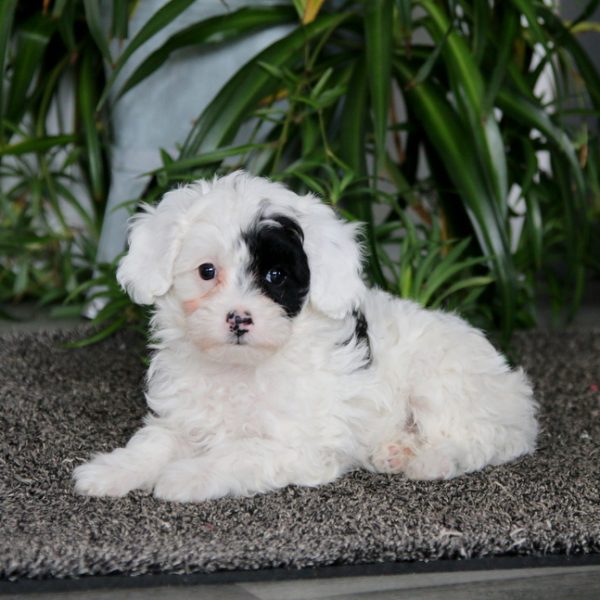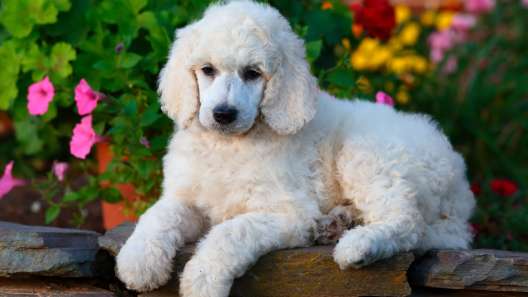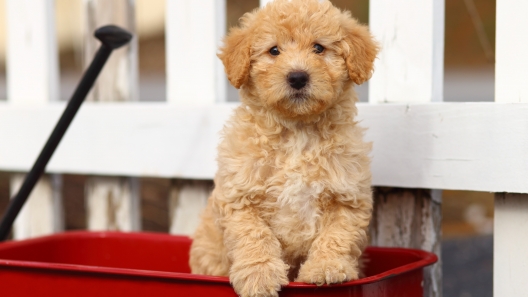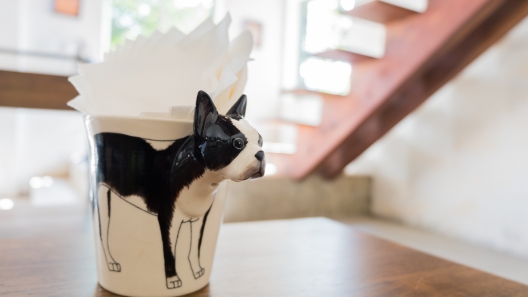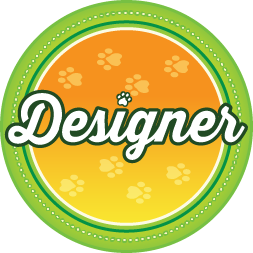
-
Activity Level:
low
-
Shedding Level:
low
-
Grooming Level:
high
-
Trainability:
high
-
Good for Novice Owners:
high
-
Adaptability:
high
-
Kid/Pet Friendly:
sometimes
-
Prey Drive:
moderate
-
Watchdog:
very alert
- Average Size: Small
- Average Lifespan: 10-13 years
Morkie-Poo Dog Breed Information
Overview
Temperament
Adaptability
Health
Owner Experience
Grooming
Activity Level
Size
Life Span
Did You Know?
The Morkie-Poo is a cross between a Morkie and a Poodle. Although a mixed-breed dog can inherit any combination of traits from their parents, Morkie-Poos tend to be small, energetic, and playful dogs that love nothing more than being with their favorite humans.
A Morkie-Poo craves human companionship and thrives on attention, especially from their favorite human. They are affectionate little dogs that love to cuddle and will tend to follow you from room to room to stay close. In this way, they can be clingy, but are a great fit for someone who wants a constant companion.
Although they will love being the only object of your affection and attention, they do tend to get along well with children, other dogs, and other pets as long as they are socialized properly. If not socialized properly, they can become territorial and overly protective of their favorite human.
As a tiny dog, they can be easily injured by young children who are still mastering motor control and coordination. Because of this, they are generally a better fit for single owners or families with older children who know how to properly interact with a dog.
Morkie-Poos can be wary, suspicious, and shy when it comes to strangers. But, as long as they have been properly socialized, they tend to warm up quickly and are happy to receive the extra attention. They can be prone to barking, especially if you train them into it or do not train them to stop barking. Keeping this in mind and starting training early can keep barking from becoming a nuisance behavior.
The Morkie-Poo is a highly adaptable dog breed. They can thrive in almost any living situation as long as they get the attention, affection, mental stimulation, and exercise they need to be happy and healthy.
Their small size and short muzzle make them particularly sensitive to heat and also make them sensitive to cold. Making sure you have the right mix of winter dog products on hand can help your Morkie-Poo stay warm on walks when temperatures drop.
Because they thrive on attention and affection, Morkie-Poos do not like to be left alone for long periods of time. They are prone to developing separation anxiety, so you will want to work with them when they are young to build confidence with some alone time to avoid it.
They also tend to have a high prey drive, so you may only want to let them off-leash in securely fenced areas. Otherwise, they may ignore your recall commands in favor of chasing after something interesting.
As with any dog breed, the Morkie-Poo can be prone to developing health issues. Some conditions to be aware of include glaucoma, hypoglycemia, cataracts, and tracheal collapse. Reputable breeders will screen their dogs to avoid passing issues to puppies, so make sure you ask about the health and genetic history of both of the parents.
As a small dog breed, the Morkie-Poo is more prone to developing dental diseases, like gum disease, tooth decay, and tooth loss, later in life. With good dental care at home and regular visits to the vet, you can help keep their teeth and gums healthy.
Although these dogs are intelligent and pick up on things quickly, they can also be stubborn despite wanting to please their owners. They will also sometimes try to use their cute face to push boundaries and get away with things.
They can be a good fit for first-time dog owners as long as training is consistent and focused on praise and positive reward. Puppy training classes are always an option and can be a big help. Even if you don’t need them, they offer a lot of benefits including opportunities to socialize a puppy.
A Morkie-Poo will have a low-shedding coat that can come in a variety of colors and can range from silky to curly depending on what coat texture they inherit from their parents. Either way, you will need to brush them daily to remove tangles and prevent mats from forming. You will also need to take them to the groomer every 4-6 weeks to keep their coat healthy and looking great.
Although the groomer may be able to assist with some things during an appointment, you will need to care for your Morkie-Poo’s nails, ears, and teeth at home. Depending on how quickly their nails grow, you may need to cut your dog’s nails once or twice a month to keep them from growing too long.
It’s also important to clean your dog’s ears as needed. Checking ears weekly to make sure they are dry, clean, and free of debris or pests is a good idea. In doing so, you can identify issues early and either carefully clean their ears or get to the vet. This can help prevent ear infections.
Because they are more prone to developing dental diseases later in life, good dental care throughout your Morkie-Poo’s life is essential. Brushing teeth or using an enzyme toothpaste daily is ideal.
Although they will have bouts of high energy and will be energetic while playing, they are a small dog that will tire themselves out quickly. Because of this, a Morkie-Poo tends to sit in a low to moderate activity range.
Daily walks plus some playtime are usually enough for this small pup. But, because they love spending time with you, they will likely be up for more activity if you are. Just make sure they aren’t overexerting themselves trying to keep up with you and be prepared to carry them if they get tired.
A fully-grown Morkie-Poo usually stands 6-10 inches tall and weighs 4-12 pounds.
A Morkie-Poo generally lives for 10-13 years on average.
The Morkie-Poo is also sometimes called a Morkie Doodle. They are considered a tri-breed as they are a cross between a designer breed and a purebred dog.
In this case, a Morkie is a cross between a Maltese and a Yorkshire Terrier, which means a Morkie-Poo has bloodlines from a Maltese, Yorkshire Terrier, and Poodle.

